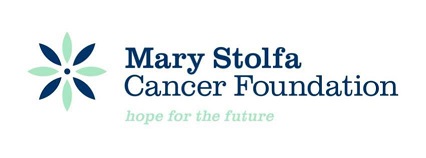 |

|
|
|
Benefit Of Fewer Than Three Doses Of HPV Vaccine Reported Results of a combined analysis of data from two independent trials of the human papillomavirus (HPV) vaccine strengthen previous findings from one of the trials that young women who received three, two, or one dose of the HPV 16/18 AS04-adjuvanted vaccine (Cervarix®) were equally protected against infection with the HPV types included in the vaccine four years after vaccination. The two trials whose data were pooled for this study were the National Cancer Institute (NCI)-sponsored Costa Rica Vaccine Trial (CVT) and the GSK Biologicals SA-sponsored PApilloma TRIal against Cancer In young Adults (PATRICIA) trial. In the trials, participants were randomly assigned to receive three doses of the HPV 16/18 vaccine or a control vaccine. However, some received fewer doses. For this analysis, the investigators first separately demonstrated similar efficacy regardless of the number of doses received. They then confirmed this finding in a subgroup of women with no sign of HPV infection either prior to or at the time of first vaccination (and thus representative of girls in the recommended age range for the vaccine). The pooled findings included 611 participants who received two doses and 292 who received just one dose. Further, the researchers observed that participants who received two doses six months apart showed evidence of partial protection against other HPV types not included in the vaccine formulation; experts refer to this as cross-protection. But women who received one dose, or who received two doses just one month apart, showed no evidence of cross-protection. According to current U.S. guidelines, the HPV vaccines should be given in three doses over a six-month period. These new data on Cervarix challenge the number of doses truly needed to confer protection and suggest the need for randomized clinical trials to directly evaluate the efficacy of a single dose, according to the authors. Because of differences in their formulations, it is not known whether these findings extend to the two other approved HPV vaccines. The study was a collaborative effort by Aimée R. Kreimer, Ph.D., Division of Cancer Epidemiology and Genetics, NCI; Frank Struyf, GSK Vaccines; Cosette Wheeler, University of New Mexico Health Sciences Center; and colleagues and appeared June 10, 2015, in Lancet Oncology. HPV 16 causes more than 60 percent of cervical cancers, and HPV 18 causes an additional 15 percent of cases. The remaining 25 percent of cervical cancers are caused by more than 10 other carcinogenic HPV types, including types 31, 33, and 45. With a single-dose regimen of Cervarix, researchers expect that women receive full protection against HPV types 16 and 18, but not other types. Despite the lack of cross-protection, a single dose may be sufficient to vastly reduce the number of cervical cancers worldwide, and could help to overcome barriers of cost and infrastructure currently prohibiting vaccine uptake in many regions of the world, according to the experts. In addition, future studies will need to determine the duration of protection afforded by fewer doses, noted Kreimer.
Posted by the National Cancer Institute | About Mary Stolfa | Our Mission | Newsletter | Volunteer | Beauty Parlor | News Articles | Clinical Trials | Other Resources for Cancer Information | Nutrition | Acknowledgement, Awards & Public Acclaim | Foundation Projects | MSCF Products | | Return Home | Fundraisers | Donations | Wall of Honor | Stories of Hope | Information on Specific Cancers (A-M) | Cancer Issues | Contact Us | Site Index | |
||
